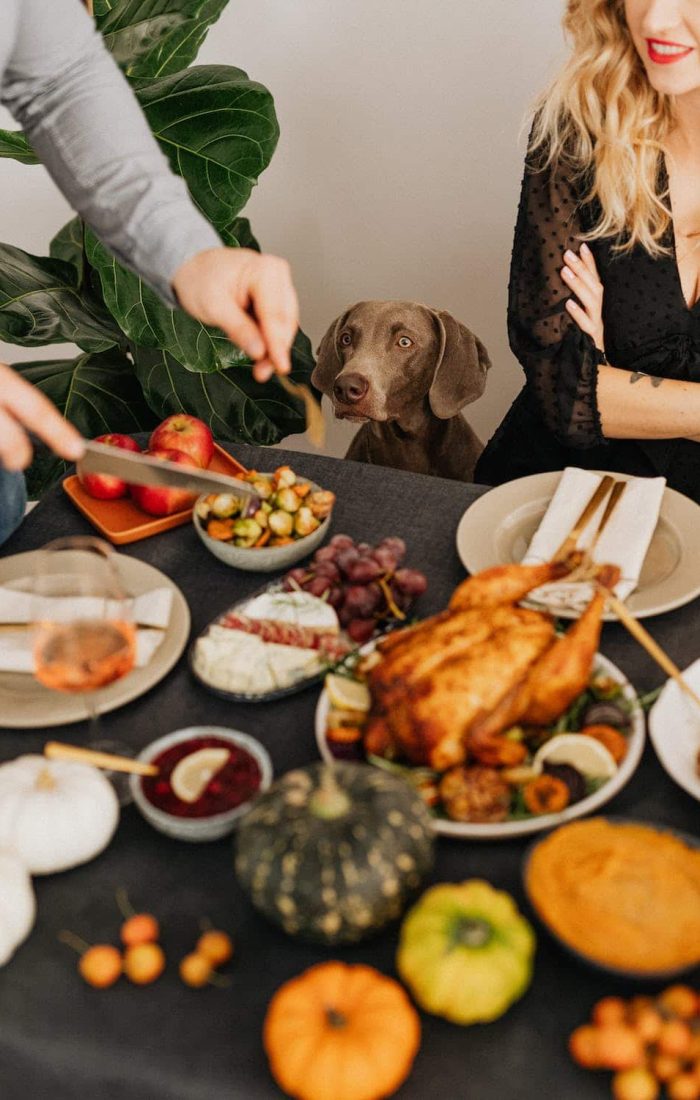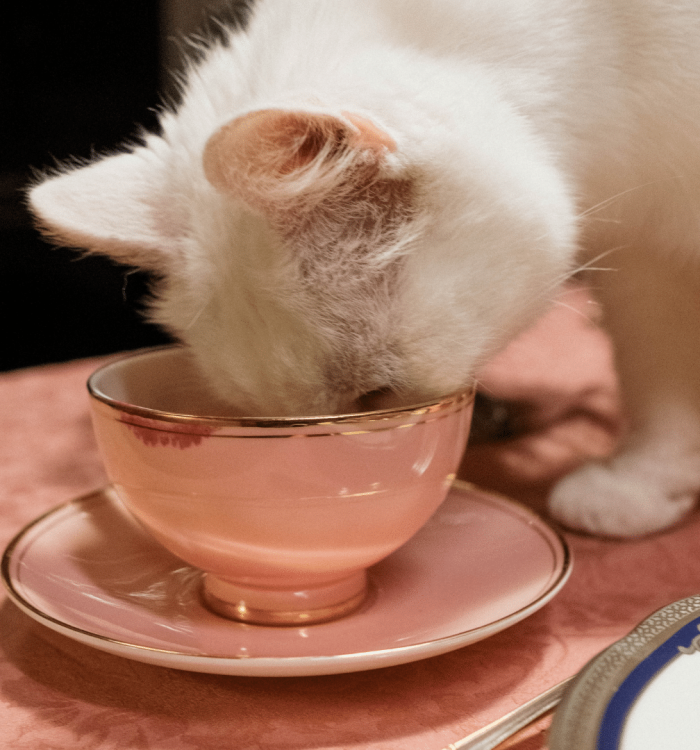Keeping Your Pets Healthy This Christmas – Food Guide
Christmas is the time to have fun, spend quality time with our families and eat our weight in turkey dinner! And since our pets are a big part of our family, they will be wanting to join in on the festive fun too.
However, the holiday season can present a lot of dangers to our furry friends, especially when it comes to food. So, to make sure your pet stays healthy this Christmas, we have created a guide on what is safe for your fur-baby to eat.
Although there are lots of things that we are advised not to feed our pets, we have narrowed down the main things at Christmas they can and can’t eat.
What our pets can’t eat?
Chocolate – The chemical theobromine, which in a way is like caffeine, is found in chocolate and is toxic to dogs. Even small amounts can cause agitation, hyperexcitability, tremors, convulsions and problems with the heart. The darker the chocolate, the more potent levels of theobromine become – with baker’s chocolate one of the most dangerous.
Nutmeg – Nutmeg is also a very toxic food for dogs, containing a toxin called myristicin which is extremely poisonous.
Grapes and raisins – Grapes and their dried products (currants, sultanas and raisins) are toxic to dogs. Ingestion of even a small quantity can cause severe kidney failure. Don’t forget this will include food items that contain dried fruits such as Christmas pudding and mince pies. Be aware that chocolate-coated raisins run the additional risk of chocolate toxicity.
Macadamia nuts – Macadamia nuts can cause lethargy, increased body temperature, tremor, lameness and stiffness in dogs.
Onions and garlic – Onions, garlic, leeks, shallots and chives all belong to the Allium species of plants and can cause toxicity, whether uncooked or cooked. Initially there can be vomiting and diarrhoea, but the main effect is damage to red blood cells, resulting in anaemia. This may not be apparent for several days after ingestion.
Turkey skin, pork crackling, sausages and fatty meats – Unfortunately, these dog foods can be able to cause inflammation of the pancreas because of their high-fat content.
Alcohol – Dogs can exhibit severe central nervous system symptoms, hypothermia, vomiting, coma, and diarrhea from consuming alcohol or absorbing alcohol through their skin. As even small amounts of alcohol can trigger life threatening levels of toxicity, including a dangerous condition called metabolic acidosis.


What your pet can eat?
Turkey meat (no skin or bones), Salmon (fillets or cooked in spring water are preferable to smoked salmon) and Lamb meat (no bones).
Scrambled egg – Eggs are a great source of protein, vitamins and minerals and are good for our pet’s health.
Potatoes – A tasty festive treat but make sure you only feed your pet plain mashed or boiled potatoes with nothing else added (e.g. salt, butter). Again, moderation is important. Potatoes, no matter how they are prepared or cooked are very starchy, which pets can struggle to digest.
Vegetables – Take it easy with veggies but you can feed your pet some carrot, parsnip, green beans, courgette, Brussel sprouts, broccoli florets (very small amount only), peas, spinach, cauliflower etc…
Most green or mixed veg is fine for pets. If you do a mashed carrot and swede with your Christmas dinner your pet is sure to love that but don’t add butter or seasoning to their portion.
Avoid corn on the cob and bulb vegetables such as onions and leeks.
We hope you found this article useful and are excited to get moving with your doggos this month. Follow us here and on our socials, @petsinapickle, for more doggy tips and tricks throughout April.
Why not get a free quote today to make sure your dog is covered for those little things that are just outside our control!
Special thanks to our friends at FirstVet for sharing their advice for this article!
With a policy from us you can get access to unlimited video calls with vets through FirstVet.
Contact Pets in a Pickle
For more pet information and facts, check out the other news on Pets in a Pickle. To find out more about the range of policies, get in touch with the team today. Call them now on 0800 044 1111, or contact the team online here.
Follow Pets in a Pickle on social media.